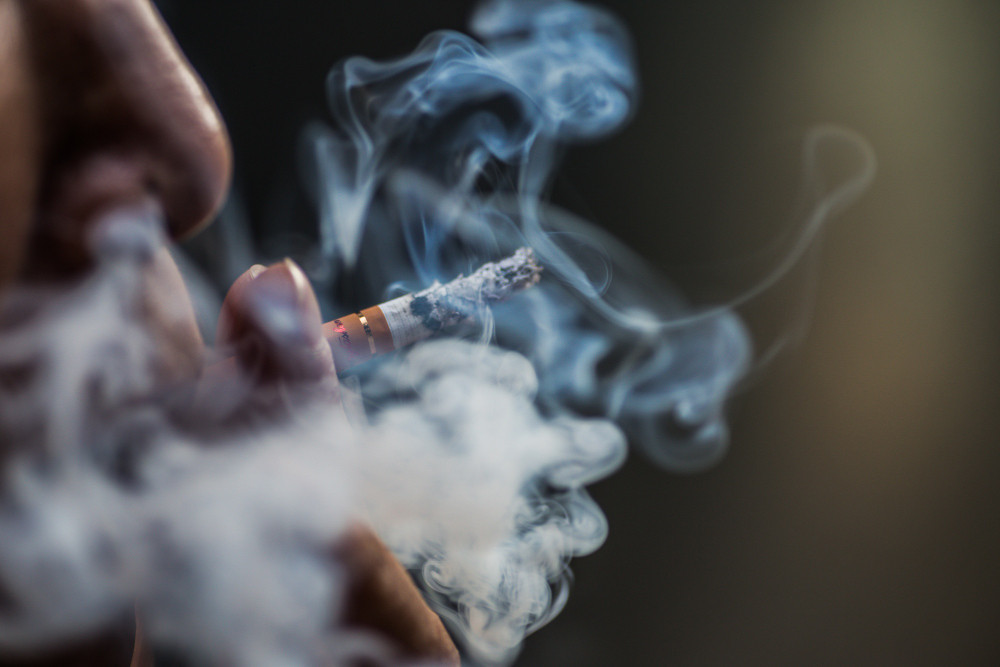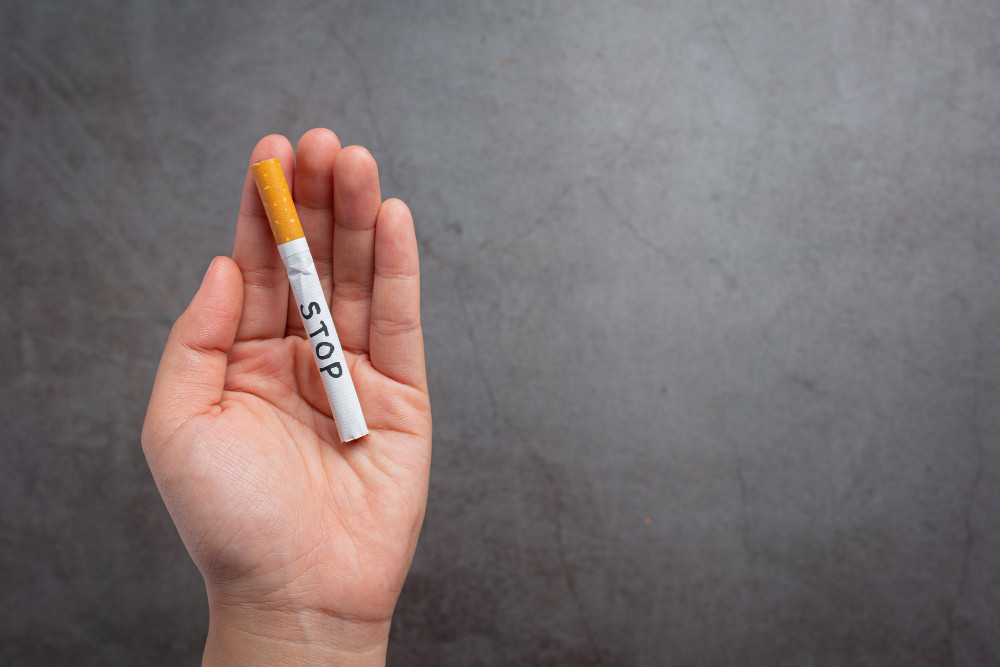Smoking is known to have various health risks, including for pregnant women. Cigarettes contain nicotine and hundreds of other harmful substances that can endanger the health of both the mother and the fetus. This fact has led to the belief that smoking low-nicotine cigarettes is considered safer during pregnancy. Is this true?
What are low-nicotine cigarettes?
The nicotine content in a cigarette varies significantly, typically around 10–14 mg per cigarette, but it can be lower or higher. This nicotine content is relatively high and is considered to have harmful effects on health. Currently, there are many low-nicotine cigarettes available, with new products claiming to contain only about 0.2–0.7 mg of nicotine.
Low-nicotine cigarettes are believed to be safer as they do not cause addiction and can help those who want to quit smoking. Is that right?
The dangers of low-nicotine cigarettes during pregnancy
Despite having lower nicotine levels, low-nicotine cigarettes still pose a number of health risks. This is because the levels of harmful substances in these cigarettes are similar to those in regular cigarettes, with only nicotine being reduced. Therefore, it can be said that only the side effects related to nicotine are decreased, but low-nicotine cigarettes are still just as harmful as regular cigarettes.
So, what are the effects on the fetus and the pregnant mother? According to Healthline, a study revealed that exposure to nicotine and alcohol, even in small amounts, can still endanger the health of the fetus and the pregnant mother.
According to studies done at Columbia University in New York in 2020, fetuses exposed to alcohol and nicotine, whether early in pregnancy or throughout pregnancy, in small or large amounts, can experience changes in brain activity. These changes can be observed through measurements using EEG (electroencephalography), a test that measures electrical activity in the brain.
These findings are important because EEG results can potentially be used as an objective and non-invasive marker to examine the relationship between neurobehavioral development and the risk of developmental disorders later in life.
In their findings, experts suggested that exposure to alcohol and nicotine during pregnancy leads to intelligence impairment and contributes to morbidity and mortality rates. Experts concluded that even minimal exposure can damage the baby's health shortly after birth.
Some of the side effects of smoking during pregnancy on the fetus include:
- Reduced oxygen supply due to carbon monoxide and nicotine in tobacco smoke
- Slower fetal growth and development
- Increased risk of birth defects such as cleft lip or palate
- Weaker fetal movements in the womb
- Placental development and function disturbances
- Slower development of the fetal brain and lungs
Complications of smoking during pregnancy
Ectopic pregnancy
Ectopic pregnancy is a pregnancy that occurs outside the uterus, commonly in the fallopian tubes. Cigarette smoke can damage cells in the fallopian tubes, leading to blockages and damage to these tubes.
Miscarriage and fetal death
Cigarette smoke contains various chemicals that can interfere with fetal development. Exposure to these chemicals in smoke can also increase the risk of problems with the placenta, hindering the supply of blood and nutrients to the fetus. Insufficient blood and oxygen supply can increase the risk of miscarriage and fetal death.
Placental issues
Smoking during pregnancy also increases the risk of placental disorders, leading to pregnancy complications such as placental abruption or placenta previa. Placental abruption is the premature detachment of part or all of the placenta from the uterine wall before delivery, while placenta previa is a condition where part or all of the formed placenta covers the birth canal.
Premature birth
Smoking during pregnancy can also increase the risk of premature birth. Premature babies are at risk of missing important growth that occurs in the womb during the last weeks and months of pregnancy.
Low birth weight
Exposure to chemicals in cigarettes, both from pregnant women who smoke and from pregnant women who are passive smokers, can also cause low birth weight in babies. Premature birth also carries the risk of causing respiratory problems, developmental delays, and hearing or vision problems in babies.
If you need medical advice or consultation, you can either visit a doctor or make use of the consultation features that are available in the Ai Care application by downloading the Ai Care application from the App Store or Play Store.
Looking for more tips and tricks for health, first aid, and other home treatments? Click here!
- dr Hanifa Rahma
Hicks, T. (2020). Even Low Levels of tobacco and alcohol Pregnancy pregnancy can impact an infant’s Brain Development. Available from: https://www.healthline.com/health-news/low-levels-tobacco-alcohol-during-pregnancy-impact-infant-brain-development#What-the-study-revealed
CDC: Smoking During Pregnancy. Available from: https://www.cdc.gov/tobacco/basic_information/health_effects/pregnancy/index.htm#
Carlson, J. (2020). 8 Dangers of Smoking While Pregnant. Available from: https://www.healthline.com/health/smoking-and-pregnancy
Radcliffe, S.(2019). Available from: https://www.healthline.com/health-news/fda-approves-low-dose-nicotine-cigarette-will-it-help
Better Health: Pregnancy and Smoking. Available from: https://www.betterhealth.vic.gov.au/health/healthyliving/pregnancy-and-smoking
ACOG: Tobacco and Nicotine Cessation During Pregnancy. Available from: https://www.acog.org/clinical/clinical-guidance/committee-opinion/articles/2020/05/tobacco-and-nicotine-cessation-during-pregnancy











